Benign Prostatic Hyperplasia
How to submit an article:
- Registered users can submit any published journal article that has a unique DOI (Digital Object Identifier) name or link to Research Hub.
- For example, you can paste the full DOI link:
https://doi.org/10.1109/5.771073or just the DOI name:10.1109/5.771073into the field above and click submit. - The person who is first to submit a valid article to Research Hub will forever be credited for it, and every article submission earns you +6 Research Points.
Benign prostatic hyperplasia is a non-cancerous enlargement of the prostate gland, which can cause urinary symptoms in men as they age.
Also known as: BPH
Related Topics
Published research studies are articles that present the findings of original research that has undergone a peer-review process and has been made publicly available in scholarly journals, books or other media.
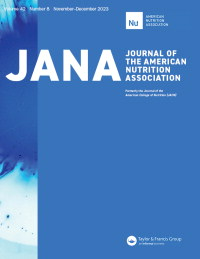
Avocado Oil ( Persea americana ) Reduces Epithelial Proliferation on Benign Prostatic Hyperplasia
2023 Feb 22 Journal of the American Nutrition Association da Silva VAP, Abboud RS, Contreiras EC, Boaventura GT, Chagas MA
Experimental Study Animal Study Benign Prostatic Hyperplasia Avocado OilAvocado oil appears to have a protective impact on the prostatic epithelium of Wistar rats subjected to induced prostate enlargement.
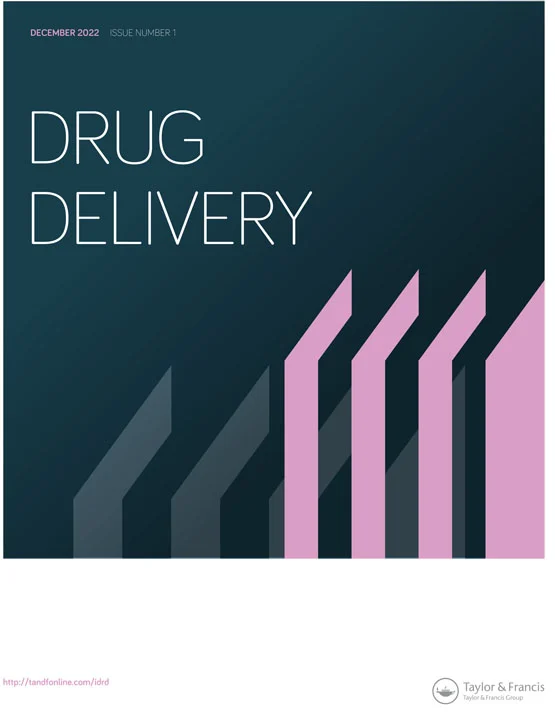
Development and optimization of a tamsulosin nanostructured lipid carrier loaded with saw palmetto oil and pumpkin seed oil for treatment of benign prostatic hyperplasia
2022 Aug 01 Drug Delivery Bakhaidar RB, Hosny KM, Mahier IM, Rizq WY, Safhi AY, Bukhary DM, et al.
The optimized TM-S/P-NLC, with specific characteristics (particle size of 102 nm, entrapment efficiency of 65%, and steady-state flux of 4.5 μg/cm2.min), demonstrated improved stability (95%) and released TM more effectively (81%) than TM-NLCs without S/P oil or TM aqueous suspension. The pharmacokinetic profile of TM in TM-S/P-NLC was improved, and in vivo studies showed favorable results in terms of prostate weight and prostate index, suggesting the potential of TM-S/P-NLC as a novel drug delivery system for BPH.
Experimental Study Pumpkin Seed Oil Benign Prostatic Hyperplasia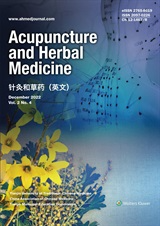
Acupuncture and moxibustion treating lower urinary tract symptoms due to benign prostatic hyperplasia: a systematic review and network meta-analysis
2022 Jun Acupuncture and Herbal Medicine Chen Z, Jiang T, Peng Y, Qiang X, Yang F, Hu H, et al.
Systematic Review Meta-Analysis Moxibustion Acupuncture Lower Urinary Tract Symptoms Urinary Tract Symptoms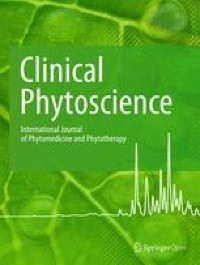
Beneficial effects of pumpkin seed soft extract on lower urinary tract symptoms and quality of life in men with benign prostatic hyperplasia: a meta-analysis of two randomized, placebo-controlled trials over 12 months
2022 Apr 13 Clinical Phytoscience Vahlensieck W, Heim S, Patz B, Sahin K
Meta-Analysis Randomised Controlled Trial Pumpkin Seed Benign Prostatic HyperplasiaPumpkin seed extract treatment could potentially offer symptomatic relief for patients experiencing moderate lower urinary tract symptoms suggestive of benign prostate hyperplasia.
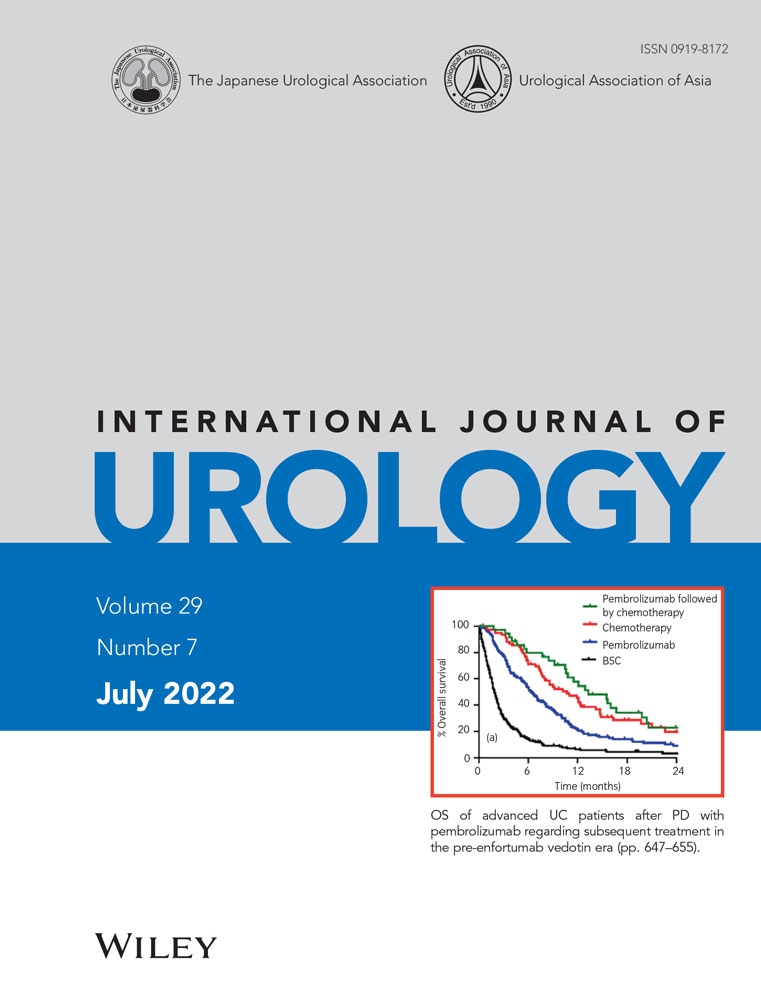
Effects of Chinese herbal medicine in patients with benign prostatic hyperplasia: A nationwide cohort study in Taiwan
2022 Mar 14 International Journal of Urology Ou SC, Huang ST, Lin MC, Chen WC, Huang CP, Lin HJ
Cohort Study Chinese Herbal Medicine Ji Sheng Shen Qi Wan Dan Shen Benign Prostatic HyperplasiaChinese herbal medicine can significantly reduce the risks of complications and need for surgery associated with benign prostatic hyperplasia.
Research insights are moderated by the Research Hub team and offer an at-a-glance overview of interesting research findings.

2023 Journal of the American Nutrition Association
Avocado oil appears to have a protective impact on the prostatic epithelium of Wistar rats subjected to induced prostate enlargement.
Experimental Study Avocado Oil
Avocado Oil (
Persea americana
) Reduces Epithelial Proliferation on Benign Prostatic Hyperplasia
da Silva VAP, Abboud RS, Contreiras EC, Boaventura GT, Chagas MA

2022 Clinical Phytoscience
Pumpkin seed extract treatment could potentially offer symptomatic relief for patients experiencing moderate lower urinary tract symptoms suggestive of benign prostate hyperplasia.
Meta-Analysis Pumpkin Seed
Beneficial effects of pumpkin seed soft extract on lower urinary tract symptoms and quality of life in men with benign prostatic hyperplasia: a meta-analysis of two randomized, placebo-controlled trials over 12 months
Vahlensieck W, Heim S, Patz B, Sahin K

2022 International Journal of Urology
Chinese herbal medicine can significantly reduce the risks of complications and need for surgery associated with benign prostatic hyperplasia.
Cohort Study Chinese Herbal Medicine Dan Shen Ji Sheng Shen Qi Wan
Effects of Chinese herbal medicine in patients with benign prostatic hyperplasia: A nationwide cohort study in Taiwan
Ou SC, Huang ST, Lin MC, Chen WC, Huang CP, Lin HJ
2021 BMC Urology
Pumpkin seed oil can alleviate symptoms of benign prostatic hyperplasia with no side effects, though not as efficiently as tamsulosin.
Randomised Controlled Trial Pumpkin Seed Tamsulosin
Pumpkin seed oil (Cucurbita pepo) versus tamsulosin for benign prostatic hyperplasia symptom relief: a single-blind randomized clinical trial
Zerafatjou N, Amirzargar M, Biglarkhani M, Shobeirian F, Zoghi G
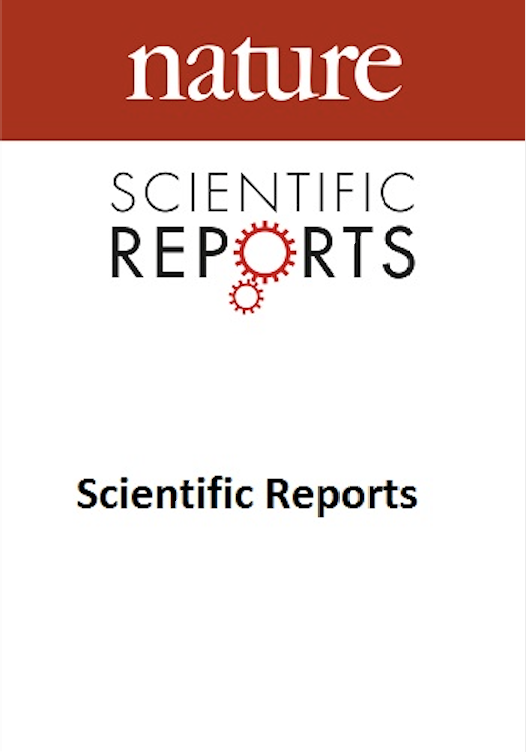
2021 Scientific Reports
Lower testosterone levels in aging men correlate with a larger prostate volume.
Cohort Study Prostate Volume Testosterone
Relationship between serum total testosterone and prostate volume in aging men
Xia BW, Zhao SC, Chen ZP, Chen C, Liu TS, Yang F, et al.
Review Articles
Review articles summarise and critically evaluate the current state of research on a specific topic or field by synthesising multiple primary research studies.

Acupuncture and moxibustion treating lower urinary tract symptoms due to benign prostatic hyperplasia: a systematic review and network meta-analysis
2022 Jun Acupuncture and Herbal Medicine Chen Z, Jiang T, Peng Y, Qiang X, Yang F, Hu H, et al.
Systematic Review Meta-Analysis Moxibustion Acupuncture Lower Urinary Tract Symptoms Urinary Tract SymptomsElectroacupuncture shows promising results to treat Lower Urinary tract symptoms caused by BPH. However, more quality evidence needs to be yielded to further support its effectiveness. —Adrian Y 17 Feb 2023

Therapeutic efficacy of orally administered pollen for nonallergic diseases: An umbrella review
2019 Aug 21 Phytotherapy Research Antonelli M, Donelli D, Firenzuoli F
The study concludes that flower pollen extracts may be useful as a complementary remedy for the management of benign prostatic hyperplasia (BPH), chronic prostatitis (CP), and vasomotor symptoms.
Review Article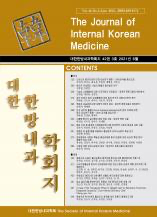
Moxibustion for Benign Prostatic Hyperplasia: A Systematic Review and Meta-analysis
2018 Jun 30 The Journal of Internal Korean Medicine Bae G, Lee S, Hong J, Lee I, Kim S, Choi J, et al.
Systematic Review Meta-Analysis Moxibustion Benign Prostatic HyperplasiaMoxibustion was found to be an effective and safe treatment improving symptoms and quality of life in patients with Benign Prostatic Hyperplasia.
Full text is in Korean, only abstract is in English —Adrian Y 17 Feb 2023
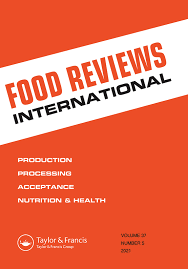
The beneficial effects of Pumpkin (Cucurbita pepoL.) seed oil for health condition of men
2018 Jun 28 Food Reviews International Ramak P, Mahboubi M
Review Article Men's Health 5-Alpha Reductase Benign Prostatic Hyperplasia Overactive Bladder Androgenic Alopecia Pumpkin SeedPumpkin seed oil appears effective for improving men's health conditions such as enlarged prostate, overactive bladder, and hair loss due to its anti-inflammatory properties and radical scavenging.

Acupuncture for benign prostatic hyperplasia: A systematic review and meta-analysis
2017 Apr 04 PLOS One Zhang W, Ma L, Bauer BA, Liu Z, Lu Y
Systematic Review Meta-Analysis Benign Prostatic HyperplasiaAcupuncture can significantly improve urological symptoms in the short term for men with benign prostatic hyperplasia.
Clinical Trials
Clinical trials are research studies that involve people and are conducted to evaluate the safety and efficacy of new treatments or interventions, such as drugs, medical devices, or behavioural therapies.

Beneficial effects of pumpkin seed soft extract on lower urinary tract symptoms and quality of life in men with benign prostatic hyperplasia: a meta-analysis of two randomized, placebo-controlled trials over 12 months
2022 Apr 13 Clinical Phytoscience Vahlensieck W, Heim S, Patz B, Sahin K
Meta-Analysis Randomised Controlled Trial Pumpkin Seed Benign Prostatic HyperplasiaPumpkin seed extract treatment could potentially offer symptomatic relief for patients experiencing moderate lower urinary tract symptoms suggestive of benign prostate hyperplasia.
Pumpkin seed oil (Cucurbita pepo) versus tamsulosin for benign prostatic hyperplasia symptom relief: a single-blind randomized clinical trial
2021 Oct 19 BMC Urology Zerafatjou N, Amirzargar M, Biglarkhani M, Shobeirian F, Zoghi G
Randomised Controlled Trial Benign Prostatic Hyperplasia Pumpkin Seed TamsulosinPumpkin seed oil can alleviate symptoms of benign prostatic hyperplasia with no side effects, though not as efficiently as tamsulosin.
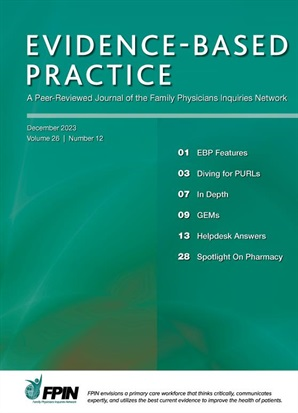
Do pumpkin seeds or pumpkin supplements reduce symptoms of BPH?
2018 Jun Evidence-Based Practice Edwards R, Shadiack A
Randomised Controlled Trial Benign Prostatic Hyperplasia Pumpkin SeedPumpkin seed oil and pumpkin seeds can effectively reduce obstructive urinary symptoms in patients dealing with symptomatic benign prostatic hypertrophy, performing as well as saw palmetto and prazosin.
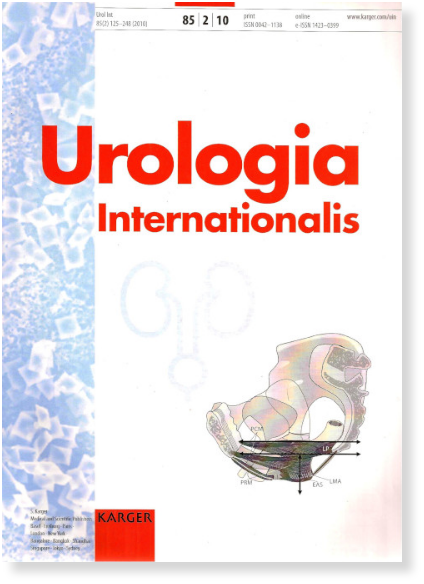
Effects of Pumpkin Seed in Men with Lower Urinary Tract Symptoms due to Benign Prostatic Hyperplasia in the One-Year, Randomized, Placebo-Controlled GRANU Study
2014 Sep 05 Urologia Internationalis Vahlensieck W, Theurer C, Pfitzer E, Patz B, Banik N, Engelmann U
Randomised Controlled Trial Benign Prostatic Hyperplasia Pumpkin SeedPumpkin seed treatment can potentially cause a significant reduction in symptoms of benign prostatic hyperplasia in men aged 50 to 80.
Beneficial Effect of Honeybee-collected Pollen Lump Extract on Benign Prostatic Hyperplasia (BPH)-A Double-blind, Placebo-controlled Clinical Trial-
2008 Jan Food Science and Technology Research MURAKAMI M, TSUKADA O, OKIHARA K, HASHIMOTO K, YAMADA H, YAMAGUCHI H
The study concluded that the 12-week intake of HPLE-supplemented food significantly increased maximum flow rate (Qmax) values in the high-dose group, while reducing residual urine volume in the same group, without encountering any significant health hazards or laboratory abnormalities.
Randomised Controlled TrialStudy Protocols
Published study protocols are detailed plans that outline the objectives, methodology, statistical analyses, and organisation of a research study that have been made publicly available for others to review and use as a reference.
Presentation Slides

Experimental Study
Avocado oil appears to have a protective impact on the prostatic epithelium of Wistar rats subjected to induced prostate enlargement.
da Silva VAP, Abboud RS, Contreiras EC, Boaventura GT, Chagas MA

Meta-Analysis
Pumpkin seed extract treatment could potentially offer symptomatic relief for patients experiencing moderate lower urinary tract symptoms suggestive of benign prostate hyperplasia.
Vahlensieck W, Heim S, Patz B, Sahin K

Cohort Study
Chinese herbal medicine can significantly reduce the risks of complications and need for surgery associated with benign prostatic hyperplasia.
Ou SC, Huang ST, Lin MC, Chen WC, Huang CP, Lin HJ

Randomised Controlled Trial
Pumpkin seed oil can alleviate symptoms of benign prostatic hyperplasia with no side effects, though not as efficiently as tamsulosin.
Zerafatjou N, Amirzargar M, Biglarkhani M, Shobeirian F, Zoghi G

Cohort Study
Lower testosterone levels in aging men correlate with a larger prostate volume.
Xia BW, Zhao SC, Chen ZP, Chen C, Liu TS, Yang F, Yan Y
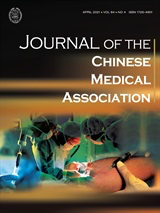
Clinical Study
Chinese herbal medicine might improve lower urinary tract symptoms in patients with benign prostatic hyperplasia.
Yeh HF, Li TF, Tsai CH, Wu PW, Huang YH, Huang WJ, Chen FJ, Hwang SJ, Chen FP, Wu TP

Systematic Review
Moxibustion was found to be an effective and safe treatment improving symptoms and quality of life in patients with Benign Prostatic Hyperplasia.
Bae G, Lee S, Hong J, Lee I, Kim S, Choi J, Han C, Yun Y, Park S, Kwon J

Review Article
Pumpkin seed oil appears effective for improving men's health conditions such as enlarged prostate, overactive bladder, and hair loss due to its anti-inflammatory properties and radical scavenging.
Ramak P, Mahboubi M

Randomised Controlled Trial
Pumpkin seed oil and pumpkin seeds can effectively reduce obstructive urinary symptoms in patients dealing with symptomatic benign prostatic hypertrophy, performing as well as saw palmetto and prazosin.
Edwards R, Shadiack A

Systematic Review
Acupuncture can significantly improve urological symptoms in the short term for men with benign prostatic hyperplasia.
Zhang W, Ma L, Bauer BA, Liu Z, Lu Y

Experimental Study
Pomegranate Fruit Extract (PFE) can potentially mitigate testosterone-induced Benign Prostatic Hyperplasia in rats due to its anti-inflammatory, antioxidant and pro-apoptotic properties.
Ammar AE, Esmat A, Hassona MDH, Tadros MG, Abdel‐Naim AB, Guns EST

Randomised Controlled Trial
Pumpkin seed treatment can potentially cause a significant reduction in symptoms of benign prostatic hyperplasia in men aged 50 to 80.
Vahlensieck W, Theurer C, Pfitzer E, Patz B, Banik N, Engelmann U
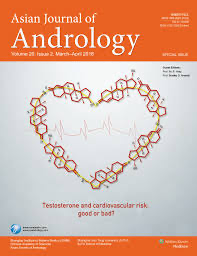
Systematic Review
Chinese herbal medicine appears to be more effective than Western medication in improving quality of life and reducing prostate volume in benign prostatic hyperplasia patients.
Ma CH, Lin WL, Lui SL, Cai XY, Wong VT, Ziea E, Zhang ZJ
Executive Summary
Write an executive summary in the form of a blog article on the topic of "Research into Chinese medicine treatment for Benign Prostatic Hyperplasia" summarising the research below and using language that can be easily understood by patients and avoiding medical jargon using a professional and caring tone of voice.
Write an executive summary in the form of a blog article on the topic of "Researched Chinese medicine treatments for Benign Prostatic Hyperplasia" summarising the research below in an objective and easy to understand way, and using language that can be easily understood by patients. Group the article into Chinese medicine treatments first, followed by nutrition and other treatments. Avoid using medical jargon and use a professional and caring tone of voice.
Write me a concise but easy to understand executive summary on the topic of "Chinese medicine treatments for Benign Prostatic Hyperplasia" based on the following research that I will give you. Your summary should be 2 paragraphs long in Australian English spelling and include references to the studies.
A Experimental Study published in 2023 in the journal Journal of the American Nutrition Association found that Avocado oil appears to have a protective impact on the prostatic epithelium of Wistar rats subjected to induced prostate enlargement. The methodology of this study involved the use of twenty-eight Wistar rats divided into four groups: a control group, an avocado oil group given an avocado oil-based diet, an induced group, and an avocado oil testosterone-induced group. The induction of prostate hyperplasia was achieved by subcutaneously implanting silicone pellets filled with testosterone for androgen stimulation in the induced group and avocado oil testosterone-induced group. The rats were euthanized after 12 weeks, their prostates collected for analysis, prepared for paraffin processing, and stained with hematoxylin-eosin and immunostaining for p63 nuclear antigen. The discussion of results reveals that the data showed a significant reduction in the thickness of the prostatic epithelium in the avocado oil testosterone-induced group compared to the plain induced group. This group also demonstrated a larger average alveolar area compared to the control group. More p63 in basal cells were observed in this group compared to both the avocado oil and control groups. Collagen remodeling was noted, with thicker fibers seen predominately in the control and avocado oil groups, while thinner fibers were more common in the induced and avocado oil testosterone-induced groups. These findings all suggest that avocado oil exerted a protective influence on the prostate under conditions of induced hyperplasia.
A Meta-Analysis published in 2022 in the journal Clinical Phytoscience found that Pumpkin seed extract treatment could potentially offer symptomatic relief for patients experiencing moderate lower urinary tract symptoms suggestive of benign prostate hyperplasia. The study methodology involved a meta-analysis of two separate studies that were randomized and placebo-controlled, focusing on the effectiveness of pumpkin seed extract in addressing urinary tract symptoms indicative of benign prostate hyperplasia. The participants included in these studies were those patients whose International Prostate Symptom Score was 13 points or higher at the baseline. The method of analysis involved assessing the response rates of patients and the improvement in prostate symptom scores at a 12-month follow-up. The discussion of results revealed that the response rates in the group receiving pumpkin seed extract were marginally higher than that of the placebo group, giving pumpkin seed extract a slight edge. Additionally, there was a minor difference observed in the change from the baseline to 12-month Prostate Symptom Score in favour of pumpkin seed extract. The meta-analysis in general indicates that a treatment involving pumpkin seed extract may result in symptomatic relief for patients suffering from moderate urinary tract symptoms associated with benign prostate hyperplasia.
A Cohort Study published in 2022 in the journal International Journal of Urology found that Chinese herbal medicine can significantly reduce the risks of complications and need for surgery associated with benign prostatic hyperplasia. The methodology of the retrospective cohort study involved analyzing data from Taiwan's National Health Insurance Research Database, covering the period between 2001 to 2013. 4142 patients newly diagnosed as having benign prostatic hyperplasia were divided into Chinese herbal medicine users and non-users. To compare these groups, they employed 1:1 propensity score matching, and the risk of complications related to benign prostatic hyperplasia was evaluated using the Cox proportional hazard model. The results showed that during the study period, the risk of complications related to benign prostatic hyperplasia was considerably lower in the Chinese herbal medicine group compared to the non-Chinese herbal medicine group, even when other variables were controlled for. The Chinese herbal medicine users had a significantly lower risk of urinary tract infection and urine retention. Plus, the Chinese herbal medicine users experienced a lower incidence rate of surgery related to benign prostatic hyperplasia and enjoyed a longer surgery-free interval than non-Chinese herbal medicine users. Among the Chinese herbal medicine, Salviae miltiorrhizae and Ji-Sheng-Shen-Qi-Wan were prescribed the most by traditional Chinese medicine practitioners.
A Randomised Controlled Trial published in 2021 in the journal BMC Urology found that Pumpkin seed oil can alleviate symptoms of benign prostatic hyperplasia with no side effects, though not as efficiently as tamsulosin. In this single-blind randomized clinical trial, patients aged 50 years or above suffering from benign prostatic hyperplasia were included. These patients were divided into two groups, with one group being administered tamsulosin nightly and the other receiving pumpkin seed oil twice a day. Variables such as age, weight, height and body mass index of the patients were taken into account. The international prostate symptom score was noted for each patient at the start, then after one and three months into the treatment. Other factors recorded include the quality of life associated with BPH, prostate-specific antigen serum, prostate and postvoid residual volume and maximum urine flow. Information regarding any drug side effects was also recorded. Following a comparison of the two groups, it was observed that there was no significant difference in principal variables at any point during the trial. However, both groups saw a notable reduction in the international prostate symptom score and an improvement in quality of life. The decrease was comparatively more significant in the tamsulosin group after one and three months. Patients administered pumpkin seed oil experienced no side effects, unlike those in the tamsulosin group who experienced dizziness, headaches, retrograde ejaculation and erythema with pruritus.
A Cohort Study published in 2021 in the journal Scientific Reports found that Lower testosterone levels in aging men correlate with a larger prostate volume. The study analysed the relationship between testosterone levels and prostate size in aging, overtly healthy males. Data was collected from 416 men who underwent routine health exams and these individuals were revisited after a span of four years. Variables not only included testosterone levels and prostate size, but also examined associated obesity-related factors such as waist circumference, body mass index, and insulin levels. The analysis focused on drawing correlations between various factors. Specifically, comparisons were made between men with lower testosterone levels and larger prostate sizes, and those with normal testosterone levels. Both initial prostate sizes and the change in size over the four-year period were evaluated in conjunction with testosterone levels. The role of testosterone levels was further intricately reviewed by adjusting for the age factor, to understand how this relationship may change over time. In investigating the results, it was observed that men with lower testosterone did tend to have significantly larger prostates, and higher levels of obesity-related factors compared to those with normal testosterone levels. It was also found that there was a negative correlation between testosterone levels and prostate size, that is, as testosterone increased, prostate size showed a substantial decreasing trend.
A Clinical Study published in 2020 in the journal Journal of the Chinese Medical Association found that Chinese herbal medicine might improve lower urinary tract symptoms in patients with benign prostatic hyperplasia. In the conducted single-arm pilot study, twenty patients with benign prostatic hyperplasia were instructed to take the investigated Chinese herbal medicine three times a day for 8 weeks, coupled with their ongoing Western medicine treatment. Scheduled follow-ups were completed, with patients completing questionnaires such as the international prostate symptoms scores, aging male symptoms score, and international index of erectile function, along with a questionnaire of traditional Chinese medicine body constitution. Diagnostic tools like uroflowmetry and sonography were utilized to measure changes in urine flow velocity and post-voiding residual urine volume over the study span. The results of the study showed a significant decrease in the total prostate symptoms scores post 8 weeks of Chinese herbal medicine treatment, indicating an improvement in the patients' condition. Additionally, this study found a decrease in specific subscores measuring voiding and incomplete emptying. Further to this, a declining trend was also observed in post-voiding residual urine volume, suggesting positive impacts of Chinese herbal medicine on the patients' urinary symptoms.
A Systematic Review published in 2018 in the journal The Journal of Internal Korean Medicine found that Moxibustion was found to be an effective and safe treatment improving symptoms and quality of life in patients with Benign Prostatic Hyperplasia. The study used a randomized controlled trial method, comparing the effects of moxibustion and placebo treatment on Benign Prostatic Hyperplasia. Participants were divided into two groups: one that received the moxibustion treatment on specific acupuncture points, and another placebo group that received a sham treatment mimicking moxibustion without therapeutic effect. Outcome measures assessed were International Prostate Symptom Score, maximum urinary flow rate, quality of life index, and occurrence of adverse events. The study found significant improvements in the moxibustion group in regards to the measured prostate symptom score and urinary flow rate when compared to the placebo group. The quality of life index was also significantly higher for the moxibustion group. Moreover, adverse events were rare and mild in both participant groups.
A Review Article published in 2018 in the journal Food Reviews International found that Pumpkin seed oil appears effective for improving men's health conditions such as enlarged prostate, overactive bladder, and hair loss due to its anti-inflammatory properties and radical scavenging. The study methodology entailed the review of various clinical trials that examined the impacts of pumpkin seed oil on different health conditions common in men. These conditions included Benign Prostatic Hyperplasia (a non-cancerous enlargement of the prostate gland), overactive bladder, and androgenic alopecia (a hair loss condition). The decision to focus on these conditions was based on the potential therapeutic value of the biochemical components of the oil, such as its rich contents of essential, highly unsaturated fatty acids and phytosterols. In discussing the results, it was observed that the beneficial effects of pumpkin seed oil in treating the examined health conditions are potentially linked to the oil's contents of phytoestrogens and unsaturated fatty acids. It was suggested that these compounds may inhibit the enzyme 5-alpha reductase, which is an important factor in the enlargement of the prostate and hair loss. Additionally, the oil's anti-inflammatory properties and its capacity to scavenge free radicals might contribute to its therapeutic advantages. Furthermore, it is postulated that the oil may also have a relaxation effect on the bladder sphincter, thereby aiding patients with urination difficulties.
A Randomised Controlled Trial published in 2018 in the journal Evidence-Based Practice found that Pumpkin seed oil and pumpkin seeds can effectively reduce obstructive urinary symptoms in patients dealing with symptomatic benign prostatic hypertrophy, performing as well as saw palmetto and prazosin. In the methodology of this research, the scientists observed and compared the effects of pumpkin seed oil, pumpkin seeds, pumpkin seed extract, saw palmetto and prazosin on patients suffering from symptomatic benign prostatic hypertrophy. The main purpose of the experiment was to determine which substances could alleviate obstructive urinary symptoms to the greatest extent. Effects of these substances were noted on a consistent basis to accurately gauge their efficacy. In the discussion of results, it was found that both pumpkin seed oil and pumpkin seeds exhibited a notable reduction in obstructive urinary symptoms among the patients. Pumpkin seed extract was observed to not perform better than placebo, implying it didn't contribute significantly to symptom relief. Interestingly, pumpkin seed oil was found to be on par with saw palmetto and prazosin in terms of alleviating BPH-related symptoms. This discovery positions pumpkin seed oil and pumpkin seeds as potential natural solutions for addressing urinary symptoms linked to benign prostatic hypertrophy.
A Systematic Review published in 2017 in the journal PLOS One found that Acupuncture can significantly improve urological symptoms in the short term for men with benign prostatic hyperplasia. The comprehensive study used a systematic review and a meta-analysis to measure both the therapeutic and adverse effects of acupuncture on benign prostatic hyperplasia (BPH) through randomized controlled trials. Independent reviewers analyzed and extracted data from various renowned databases including MEDLINE, EMBASE, The Cochrane Library, and several Chinese knowledge resources. The trials focused on BPH symptomatic men and reviewed the extent to which acupuncture treatment altered urological symptoms. The results from eight separate randomized controlled trials involving 661 men were combined, showing statistical short-term (4-6 weeks) improvement in urological symptoms for BPH patients through the use of acupuncture. However, the medium-term follow-up (12-18 weeks) analysis did not indicate any significant effect. The beneficial effects were considerably noticeable in cases of moderate to severe BPH on the short-term follow-up endpoints. Nonetheless, the clinical significance of these changes necessitates rigorous and long-term follow-ups for validation.
A Experimental Study published in 2015 in the journal The Prostate found that Pomegranate Fruit Extract (PFE) can potentially mitigate testosterone-induced Benign Prostatic Hyperplasia in rats due to its anti-inflammatory, antioxidant and pro-apoptotic properties. The study was carried out using 48 rats, which were randomly distributed into six groups. The Benign Prostatic Hyperplasia (BPH), a disease that affects men over 50, was induced in these rats using testosterone, except for one group which served as the control. Four groups of the induced rats, thereafter, were treated with diverse daily dosages of Pomegranate Fruit Extract (PFE), while one group received a regular dosage of PFE without BPH induction. Regarding the investigation outcomes, the most significant effect was observed in rats treated with the largest (100mg/kg) dosage of PFE. This treatment substantially reduced testosterone-induced increase in prostate weight and other related levels. Additionally, PFE significantly decreased Malondialdehyde (a marker for oxidative stress) and increased Glutathione, Superoxide dismutase, and Catalase, all of which work as antioxidants. The PFE also demonstrated an ability to decrease the expression of COX-II, iNOS and Ki-67 (indicators of inflammation and cell proliferation) while enhancing the rate of apoptosis (programmed cell death), contributing to the prevention of BPH development.
A Randomised Controlled Trial published in 2014 in the journal Urologia Internationalis found that Pumpkin seed treatment can potentially cause a significant reduction in symptoms of benign prostatic hyperplasia in men aged 50 to 80. In the GRANU study, 1,431 men aged 50-80 years, exhibiting symptoms of benign prostatic hyperplasia, were assigned randomly to one of three groups: those receiving pumpkin seeds, capsules filled with pumpkin seed extract, and a placebo group. The primary criterion for response was measured by a reduction in the International Prostate Symptom Score (IPSS) after 12 months. The secondary outcomes were focused around the quality of life in relation to the IPSS, individual items on the IPSS and diary-recorded nocturia. After a year, there was no statistical difference observed between the group taking pumpkin seed extract and the placebo group. However, the group treated with pumpkin seed showed a significant descriptive difference when compared with the placebo group. The treatment was well tolerated overall and showed a clinically relevant reduction in the IPSS among the men with benign prostatic hyperplasia who were treated with pumpkin seed for 12 months.
A Systematic Review published in 2013 in the journal Asian Journal of Andrology found that Chinese herbal medicine appears to be more effective than Western medication in improving quality of life and reducing prostate volume in benign prostatic hyperplasia patients. The method utilized in this research involved the systematic review of randomized controlled trials from diverse electronic databases. These trials were focused on comparing Chinese herbal medicine, in standalone or supplementary use with Western medication, against placebo or solely Western medication. All trials reviewed pertained to benign prostatic hyperplasia. Outcomes measured included changes in patients' urological symptoms, urodynamic measures, prostate volume and the occurrence of adverse events. The analysis revealed that Chinese herbal medicine was superior to Western medicines in terms of improving patients' quality of life as well as reducing the size of the prostate. Furthermore, the occurrence and frequency of adverse events in patients treated with Chinese herbal medicines were found to be similar to those observed in placebo groups and lesser compared to groups treated with Western medication. However, due to the limited number of trials and their methodological quality, the evidence supporting the efficacy of Chinese herbal medicine remains weak.
Moderation Tools
Topic
Sign In
Users not signed in are limited to viewing the 5 most recent items of content.
Electroacupuncture shows promising results to treat Lower Urinary tract symptoms caused by BPH. However, more quality evidence needs to be yielded to further support its effectiveness. —Adrian Y 17 Feb 2023